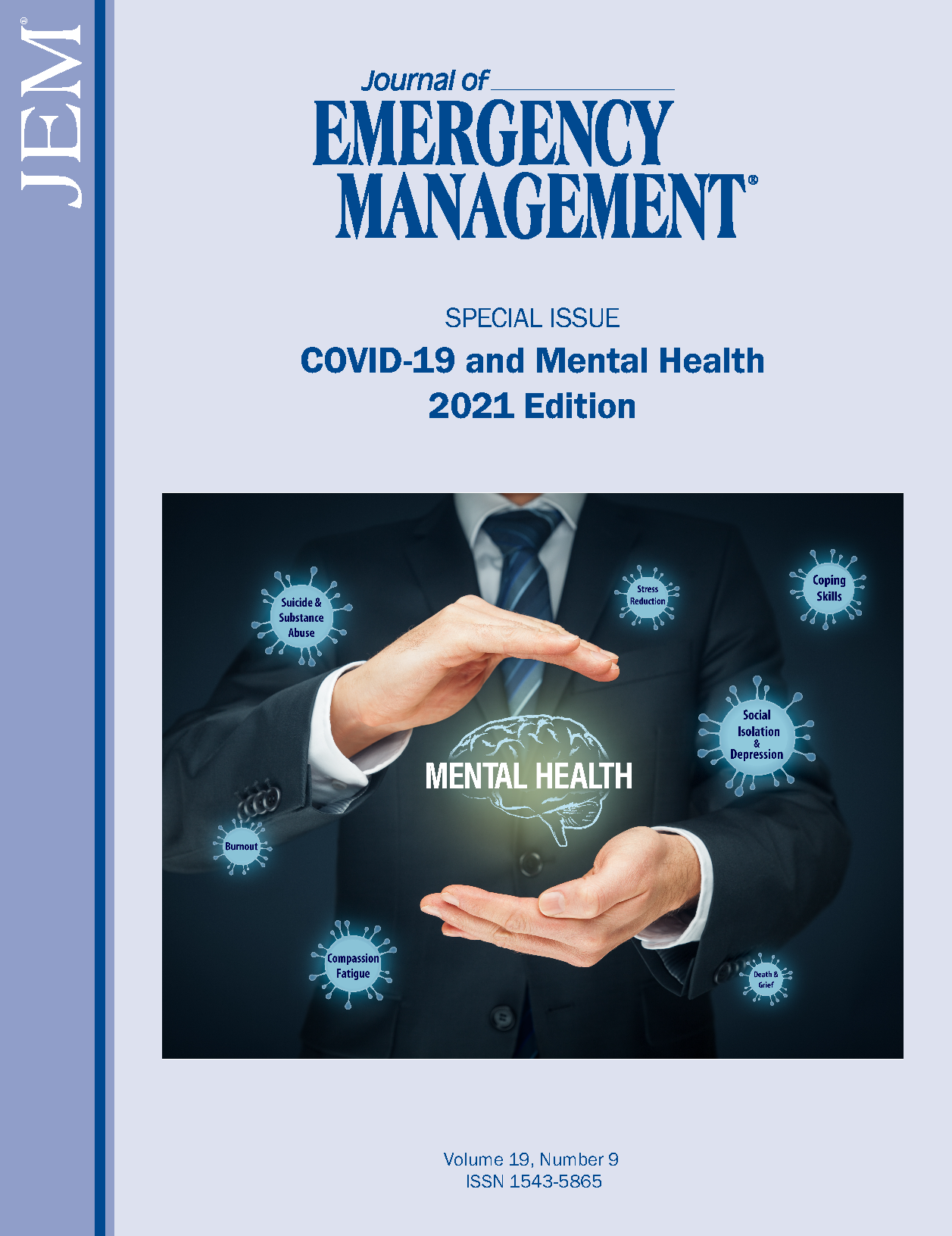Psychological impact of managing COVID-19 patients among doctors: A pre- and post-survey study
DOI:
https://doi.org/10.5055/jem.0610Keywords:
anxiety, COVID-19 pandemic, depres¬sion, healthcare providers, severe acute respiratory syndrome coronavirus 2, stress, post-traumatic stressAbstract
Objective: In any struggling healthcare system, it is always the frontline workers—doctors, nurses, and paramedical staff – that are affected first. This study aimed to assess the psychological impact—anxiety, stress, depression, and post-traumatic stress disorder (PTSD) —among doctors working in COVID-19 wards and the underlying triggers in a public hospital in Karachi.
Methods: Pre- and post-survey methodologies were adopted. Post-graduate trainees working in COVID-19 isolation facilities from April till September 2020 were interviewed before starting their one-month rotation and after completing it. The psychological impact was assessed using two standard instruments—Depression Anxiety and Stress 21 (DASS-21) and the Impact of Event Scale-Revised (IES-R). Data were entered and analyzed through SPSS version 22.0.
Results: For 100 doctors, the mean score for stress, anxiety, stress, and depression on DASS-21 and PTSD on IES-R significantly increased after the rotation (p < 0.01). The mean score of depression and IES-R was higher in younger (<28 years) doctors (p ≤ 0.05). Married doctors scored higher on anxiety and IES-R (p ≤ 0.05). Doctors who were not willfully performing their duties scored worse on all measures of DASS-21 and IES-R (p < 0.01). Doctors facing family resistance scored significantly higher on stress, anxiety, and IES-R (p < 0.01).
Conclusion: Working in COVID-19 facilities is imparting a negative impact on the psychological health of doctors. Healthcare administration should be aware of this psychological distress and should introduce mental health aid at administrative levels to prevent a mental health epidemic among care providers.
References
World Health Organization: Rolling updates on corona virus disease (COVID-19). Available at https://www.who.int/emergencies/diseases/novel-coronavirus-2019/events-as-they-happen. Accessed May 14, 2020.
World Health Organization: WHO extends support to Pakistan as it confirms its first two cases of COVID-19. 2020. Available from: http://www.emro.who.int/pak/pakistan-news/who-extends-support-to-pakistan-as-it-confirms-its-first-two-cases-of-covid-19.html. Accessed May 14, 2020.
Government of Pakistan: COVID-19 Health Advisory Platform by Ministry of National Health Services Regulations and Coordination. 2020. Available at https://covid.gov.pk/. Accessed December 14, 2020.
Hassan A, Mahmood K, Bukhsh HA: Healthcare system of Pakistan. Int J Adv Res Publ. 2017; 1: 170-173. Available at http://www.ijarp.org/published-research-papers/oct2017/Healthcare-System-Of-Pakistan.pdf.
Bhatti MW: Pakistan has lost 42 doctors among 58 healthcare providers to COVID-19. The News. 2020. Available at https://www.thenews.com.pk/print/680655-pakistan-has-lost-42-doctors-among-58-healthcare-providers-to-covid-19. Accessed December 14, 2020.
Rana W, Mukhtar S, Mukhtar S: Mental health of medical workers in Pakistan during the pandemic COVID-19 outbreak. Asian J Psychiatr. 2020; 51: 102080. DOI:10.1016/j.ajp.2020.102080.
Lovibond SH, Lovibond PF: Manual for the Depression Anxiety & Stress Scales (2nd Ed.). Sydney: Psychology Foundation, 1995.
Christianson S, Marren J: The impact of event scale-revised (IES-R). Medsurg Nurs. 2012; 21(5): 321-322.
Lai J, Ma S, Wang Y, et al.: Factors associated with mental health outcomes among health care workers exposed to coronavirus disease 2019. JAMA Netw Open. 2020; 3(3): e203976. DOI:10.1001/ jamanetworkopen.2020.3976.
Liu S, Yang L, Zhang C, et al.: Online mental health services in China during the COVID-19 outbreak. Lancet Psychiatry. 2020; 7(4): e17-e18. DOI:10.1016/S2215-0366(20)30077-8.
Xiao H, Zhang Y, Kong D, et al.: The effects of social support on sleep quality of medical staff treating patients with coronavirus disease 2019 (COVID-19) in January and February 2020 in China. Med Sci Monit. 2020; 26: e923549. DOI:10.12659/ MSM.923549.
Wong TW, Yau JK, Chan CL, et al.: The psychological impact of severe acute respiratory syndrome outbreak on healthcare workers in emergency departments and how they cope. Eur J Emerg Med. 2005; 12(1): 13-18.
Pappa S, Ntella V, Giannakas T, et al.: Prevalence of depression, anxiety, and insomnia among healthcare workers during the COVID-19 pandemic: A systematic review and meta-analysis. Brain Behav Immun. 2020; 88: 901-907. DOI:10.1016/j.bbi.2020.05.026.
Rodríguez-Rey R, Garrido-Hernansaiz H, Bueno-Guerra N: Working in the times of COVID-19. Psychological impact of the pandemic in frontline workers in Spain. Int J Environ Res Public Health. 2020; 17(21): 8149. DOI:10.3390/ijerph17218149.
Wilson W, Raj JP, Rao S, et al.: Prevalence and predictors of stress, anxiety, and depression among healthcare workers managing COVID-19 pandemic in India: A nationwide observational study. Indian J Psychol Med. 2020; 42(4): 353-358. DOI:10.1177/0253717620933992.
Brooks SK, Webster RK, Smith LE, et al.: The psychological impact of quarantine and how to reduce it: Rapid review of the evidence. Lancet. 2020; 395(10227): 912-920. DOI:10.1016/S0140- 6736(20)30460-8.
Galbraith N, Boyda D, McFeeters D, et al.: The mental health of doctors during the COVID-19 pandemic. BJPsych Bull. 2020. DOI:10.1192/bjb.2020.44.
Downloads
How to Cite
Issue
Section
License
Copyright 2007-2025, Weston Medical Publishing, LLC and Journal of Emergency Management. All Rights Reserved.






